Introduction
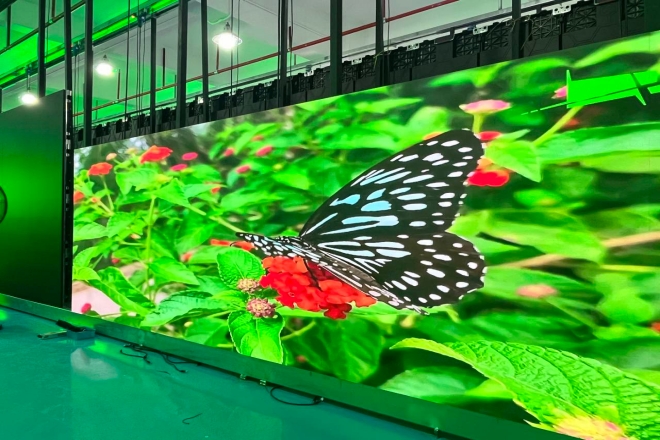
Have you ever stopped in front of a giant LED billboard in the city center and been deeply attracted by the gorgeous picture? Or in a sports stadium, you were infected by the shocking atmosphere created by the LED display screens around you?
LED display screens, the crystallization of modern technology, have become an indispensable part of our lives with their unique charm. But have you ever wondered why these amazing display screens are so expensive?
This article will take you to find out, and in 4 minutes, reveal the secrets behind the price of LED display screens for you so that you can more wisely choose the LED display screen products that suit you while understanding the reasons for the price.
1. Technical complexity and cost investment of LED display screens
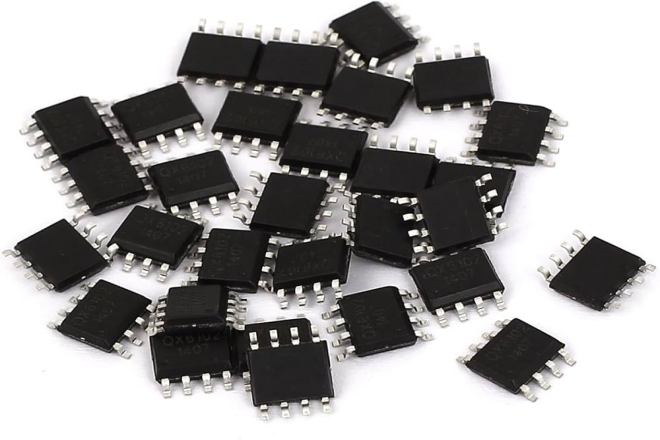
1). LED chip: A double test of quality and cost
The LED chip is like the heart of the display screen, and its quality is directly related to the “face” of the entire screen. High-quality LED chips are like painting with the best paint, with bright colors, high brightness, and long-lasting durability.
Such chips can keep the display screen as bright as before after working for a long time, reduce failures and light decay, and extend service life.
However, good things are naturally not cheap. Behind high-quality LED chips are a lot of R&D investment, expensive materials, and sophisticated manufacturing processes.
Therefore, the initial investment for display screens made with such chips will be relatively large. However, in the long run, its stability and durability will save you a lot of maintenance and replacement costs, and the user experience will be better.
2). Manufacturing process and technology: The art of excellence
The manufacture of LED display screens is like making a fine work of art. From the packaging of LED chips to the design of circuit boards to the integration of drive systems, every link requires extremely high precision and strict quality control. It’s like carving a piece of jade, and a slight deviation may destroy the overall beauty.
Moreover, with the advancement of technology, people’s requirements for display screens are getting higher and higher. Finer pixels, higher refresh rates, wider viewing angles… These all require manufacturers to continuously invest in research and development to improve the precision and intelligence level of production equipment.
In this way, the cost will naturally increase. However, only in this way can we make competitive products that meet market demand.
In general, the technical complexity and cost investment of LED display screens complement each other. To make high-quality display screens, we must continue to work hard on LED chips, manufacturing processes and technical requirements.
Although this will increase costs, it will also bring better user experience and market competitiveness. Therefore, for manufacturers, this is an area worth investing in.
2. High-resolution and high definition of LED display screens
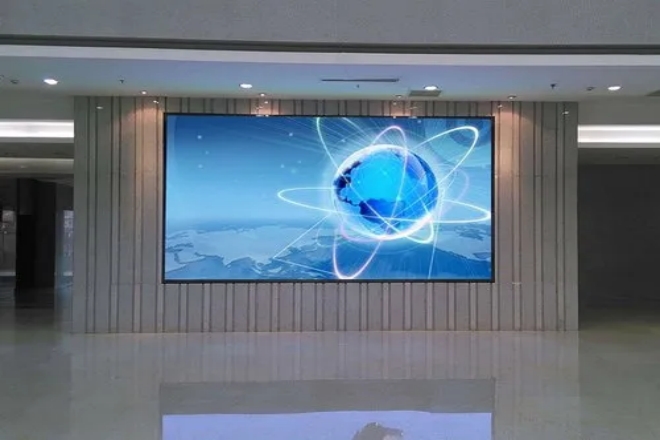
1). Resolution and display effect
- The importance of resolution:
Resolution is a key indicator for measuring the pixel density of the display screen, which directly affects the fineness and clarity of the display effect.
High resolution means that there are more pixels per unit area on the display screen, so it can present more delicate and realistic images and videos.
This is especially important for watching high-definition videos, fine graphics, and application scenarios that require high-detail display.
- Cost considerations:
However, the manufacturing cost of high-resolution displays is also relatively high.
This is because as the pixel density increases, more LED chips, more complex circuit designs, and more sophisticated manufacturing processes are required to ensure the normal operation and consistency of each pixel.
In addition, the drive system and control system of high-resolution displays also require higher performance and more complex algorithms to support, which further increases the cost.
2). High brightness and contrast
- The advantage of high brightness:
LED displays are known for their high brightness, especially in outdoor environments, where high brightness ensures that the display screen is still clearly visible under strong light. The realization of high brightness is inseparable from high-quality LED chips and optimized circuit design, which can provide stronger luminous ability and better light effect.
- The significance of contrast:
Contrast is an important indicator for measuring the black performance and color layering of the display.
High-contrast displays can present deeper blacks and richer color layers, making images and videos more vivid and realistic. For LED displays, high contrast usually requires more advanced driving technology and more sophisticated grayscale control algorithms to achieve.
- Increased cost:
However, the realization of high brightness and high contrast is also accompanied by increased costs. High-brightness LED chips usually require higher power and better heat dissipation systems to ensure stable operation, which increases material costs and manufacturing costs.
At the same time, the realization of high contrast requires more complex driving circuits and algorithm support, which further increases the cost of the product.
Therefore, while pursuing high brightness and high contrast, manufacturers need to make a reasonable balance between cost and performance.
3. Size and protection level of LED display
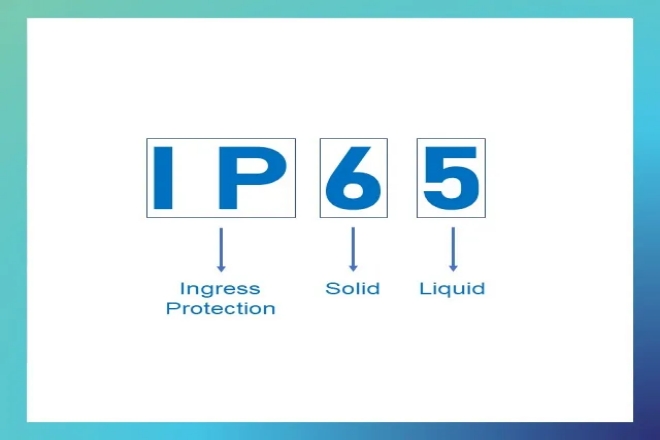
1). Display size: Size determines cost and effect
The size of the LED display is like choosing a TV. A large one looks good but it costs more money. Why? Because large screens require more LED lights, stronger brackets and more power supplies to support them, all of which will increase the cost.
Moreover, large screens are more troublesome to transport and install, and require special tools and teams, which also cost money.
However, large screens also have their advantages. The visual effect is definitely more shocking, and they are suitable for use in concerts, stadiums or large shopping malls. Small screens are suitable for homes, offices or small shops, which are both economical and practical.
2). Protection level and durability: Waterproof and dustproof, long-lasting
Outdoor LED displays must be able to withstand wind and rain, which is important for protection levels. The protection level is indicated by the IP code, such as IP65;
The front 6 indicates the dustproof level, and the back 5 indicates the waterproof level. The larger the number, the stronger the protection ability.
Although the display screen with a high protection level is more expensive, it can work normally in harsh environments and is not easy to break. In this way, you don’t need to repair it frequently, which will save you money in the long run.
For example, an IP65 display screen is not afraid of dust and light rain; an IP67 display screen can be soaked in water for a short time; and an IP68 display screen can work underwater for a long time, which is amazing!
So, when choosing an LED display screen, in addition to looking at the size and price, don’t forget to look at its protection level!
4. Control system and software of LED display screen
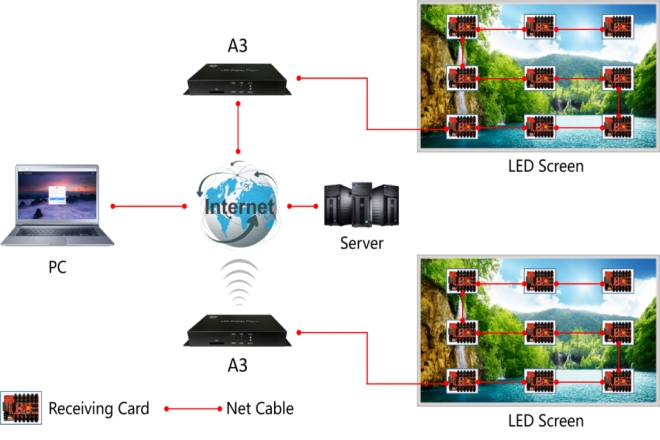
1). Control system: The “brain” of the LED display screen
Imagine that the LED display screen is like a big TV but much more complicated than a TV. The control system is the “brain” of this big TV, which is responsible for making the display screen smarter.
- Image processing expert:
The control system can process various complex images, such as high-definition video, dynamic pictures, and even real-time data. It ensures that these images look clear and smooth on the display screen, just like watching a movie.
- High refresh rate, say goodbye to blur:
Just like the higher the refresh rate of the mobile phone screen, the smoother the sliding, the control system of the LED display screen also has a refresh rate.
A high refresh rate can make the image more stable, reduce the feeling of blur and afterimage, and make the audience more comfortable.
- Stable display, no fear of challenges:
No matter how complex the environment is, such as under the sun or when the picture changes very quickly, the control system can keep the display screen clear and accurate in color. It is like a super regulator, making each LED light obedient and presenting the picture perfectly.
2). Software and technical support: The “support group” of LED display screen
In order for the LED display screen to run stably, in addition to the “brain” control system, it also needs a powerful “support group” – professional playback software and continuous technical support.
- Many software functions:
Professional playback software is like a multi-function remote control that can play multimedia, update real-time data, and remotely control the display screen. In this way, no matter how you want to use it, you can easily get it done.
- Technical support, on-call:
Just like you will find customer service when you encounter problems with your mobile phone, the supplier of LED display screens will also provide technical support. They can help you solve problems in use in a timely manner and keep your display screen “online.”
- Update and maintenance, continuous improvement:
Technology is always improving, and software and systems also need to be continuously updated. Suppliers will regularly release new versions to fix problems and add new features. Users should also regularly maintain the software and system to keep them in the best condition and ensure the long-term stable operation of the display.
5. Brand and service of LED display
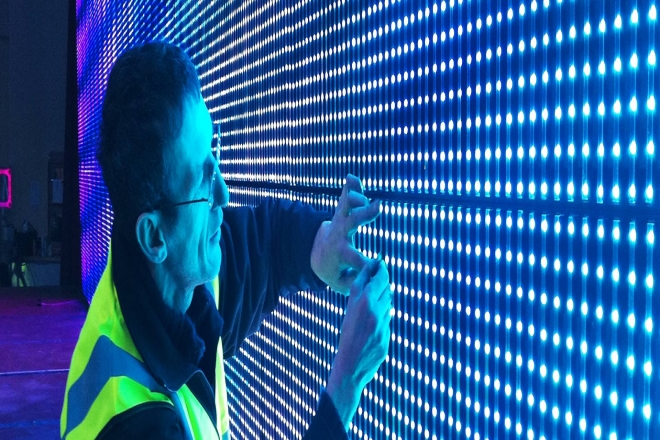
1). Brand effect
In the world of LED display, brand is like a “credit label”. When you see a well-known brand, you can rest assured that its quality, technology and service are first-class.
- Quality assurance:
Well-known brands are like “athletes” who have undergone rigorous training. They have their own set of high standards to ensure that each LED display can run fast, jump high, and have strong endurance. In this way, the picture you see will be clearer, more stable, and last longer.
- Excellent performance:
These brands are like “innovators” in the technology industry, constantly developing new technologies to make LED displays brighter, wider viewing angles, and faster responses. Even in the outdoors with direct sunlight or in a crowded gymnasium, you can enjoy perfect visual effects.
- Perfect after-sales service:
If you encounter problems during use, well-known brands are like your “personal consultants”. They have professional teams and a complete network to help you solve problems. Whether it is consultation, repair or replacement of parts, you can get timely and effective help.
However, good things are naturally expensive. Well-known brands are usually more expensive because of their brand value and service quality. But think about it: in order to get a better experience and service, this premium is worth it.
2). Installation and maintenance
LED display screens are not something that can be used by just hanging them anywhere. They require professional installation and maintenance to ensure that they work properly.
- High installation cost:
Installing an LED display screen is like building a complex stage. It is necessary to design brackets, wiring, heat dissipation, etc., according to the venue and environment. Especially in outdoor or large venues, the difficulty and cost of installation will be greatly increased.
Moreover, professional teams and equipment are required to ensure the quality of installation.
- High maintenance requirements:
LED display screens are like precision machines that require regular maintenance and repair. For example, cleaning the screen, checking the lines, adjusting the display effect, etc. If a fault occurs, professional technicians are also needed to detect and repair it. These all require professional teams and processes to ensure.
6. Market demand and supply chain for the entire LED display screen
1). Market demand
Market demand is like everyone’s “enthusiasm” for buying LED display screens. If many people want to buy (for example, because of increased demand for billboards, stage effects, commercial displays, etc.), then the LED display becomes “hot,” and the price may rise.
On the contrary, if fewer people buy, the price may fall because the merchant may want to sell it quickly.
2). Supply chain stability
Supply chain stability is like the process of “refueling” the production of LED displays. If every link in the supply chain is smooth, with a sufficient supply of raw materials, fast production speed, and no unexpected delays, then the LED display can be produced on time and in quantity, and the price will be relatively stable.
However, if there is a problem in the supply chain, such as raw material prices have increased, production speed has slowed down, or a certain link has failed, then the production cost will increase, and the price may also increase. It’s like you go to a restaurant to eat. If the restaurant’s ingredients have increased in price or the chef is sick, then you may need to pay more or wait longer.
Conclusion
In summary, the reason why LED displays are more expensive is the combined effect of multiple factors. From the complexity of core technology to the high-demand manufacturing process, from the pursuit of high resolution and high definition to the design of large size and high protection level to brand effect and service guarantee, each link has condensed huge cost investment and technological innovation.
However, it is the joint effect of these factors that enables LED display screens to operate stably in various complex environments, present stunning visual effects, and become an indispensable visual display tool in modern life and various industries.
Finally, if you want to know more about LED display screens, please get in touch with us.
